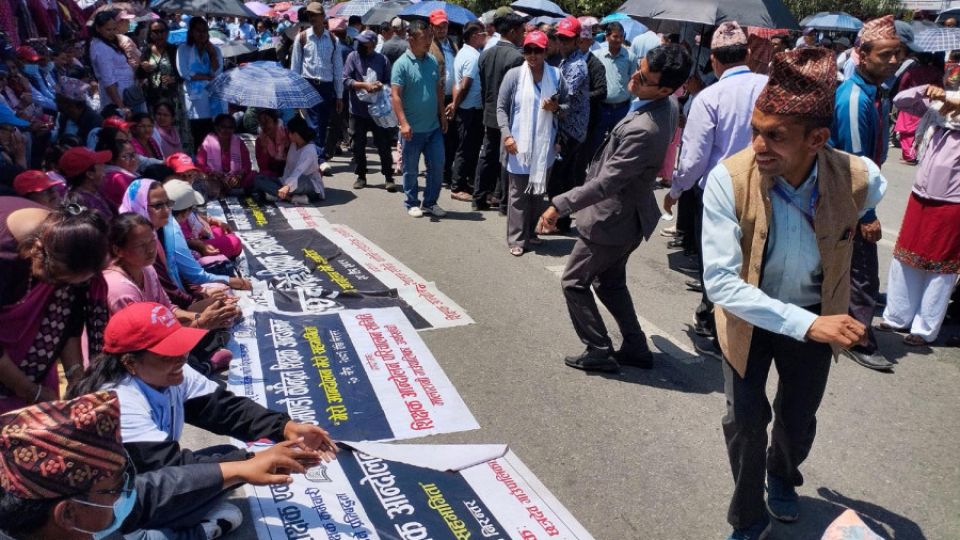May 26, 2025
“We are not economically and financially strong to execute earlier agreements and further burden the state coffers. There is no point making commitments in the issues that cannot be implemented,” he said.
“The government and the ruling parties have full commitment to implementing the nine-point agreement through the [upcoming] budget.”
The government, however, is in talks with the federation to discuss their demands, according to Pant. He said the points agreed with the teachers would be incorporated in the School Education Bill that is being discussed in the House committee.
Pant also sought a week for discussions with the federation to devise the government’s position on the bill. The House panel, which is finalising the bill, had asked Pant to make the government’s position clear on various provisions of the legislation. As per Pant’s request, the House committee has deferred the discussion on the bill by a week.
After around two months of deliberation, a subpanel under the House committee submitted a report last week resolving most of the issues except the regulation of private schools and management of Early Childhood Development classes.
However, the federation expressed serious reservations about the report calling it more regressive than the original bill and warned of sterner protests.
“The agreement for internal competition for temporary teachers [including relief quota teachers, temporary contract teachers, teachers from former lower secondary schools, learning grant teachers, technical stream, and special education] has not been upheld,” the federation said. “Furthermore, temporary contract and learning grant teachers have been excluded from internal competition.”
The redrafted bill envisions internal competition for 60 percent of the seats, with the remaining 40 percent vacancies to be filled through open competition. The federation has also expressed dissatisfaction with the minimum service requirement for automatic promotion as the bill states teachers must serve at least seven years to qualify.
“It has no provision for counting years of temporary service for teachers who later became permanent. The agreement to take temporary service periods into account to qualify for pension has been excluded from the new bill,” reads the statement.
The federation also seriously objects to the clause placing school teachers under local governments. In line with the Constitution of Nepal, the panel agreed that teachers would work under local governments, but it allows for one-time transfers between and within local units and provinces.
The teachers’ body urged the Education Committee to revise the bill to address their concerns. “If it doesn’t happen, teachers and staff will take to the streets with an even larger force. We want to make it clear that the state will be solely responsible for any grave situation that arises as a result,” said the federation.
Pant said the federation’s demands are not limited to the nine-point agreement and are difficult to implement. Medical treatment for teachers and school staff at the Civil Service Hospital in Kathmandu at subsidised rates and payment of accumulated leaves as a lump sum upon retirement of all temporary teaching and school staff are among the agreed points.
Adjustment of the salaries of ECD facilitators and non-teaching school staff, providing rural allowances to temporary teachers and staff, revision to the education regulations to include teachers and staff—currently paid with internal resources of community schools—in the contributory Social Security Fund scheme were the other agreements.
The government has said these demands, which will cost Rs8 billion to implement, will be addressed through the budget being presented in the federal parliament on Thursday. The additional demands the federation has floated based on its past agreements will cost more billions, according to officials.
The ruling parties on April 30 also agreed to get the bill endorsed from the lower house by June 29. “The government is also committed to the deadline,” said Pant.


